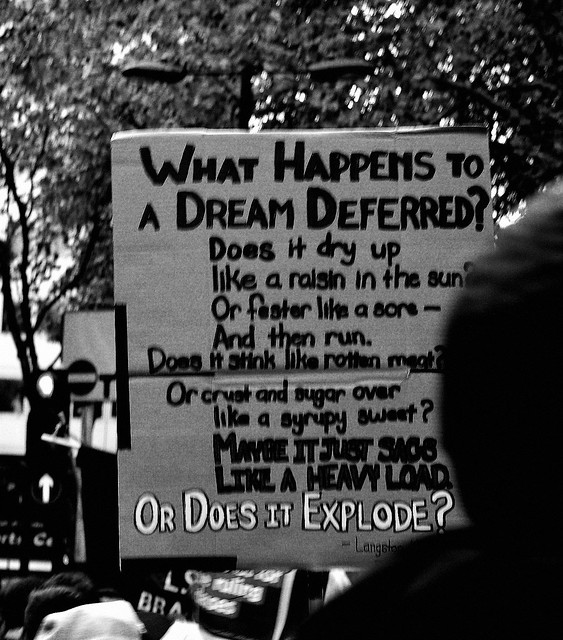What happens to a dream deferred? In A Raisin in the Sun, each character holds onto their dreams of transcending their problems and improving their situation. Mama reluctantly gives in at the end, wondering if dreams perhaps were never meant for people of her status. However, Walter becomes a man at last, realizing that money is not worth losing pride and dignity, all associated with his manhood and dream of being the man of the house.
Walter Younger fantasizes day in and day out about his glorious future and acts recklessly, innocently handing over the insurance money to fulfill these hidden dreams. Mama chides Beneatha for being too hard on her brother, and not understanding how many times he has been denied those dreams. Walter's desperation stems from the fact that he does not hold the position as the man of the house, and cannot provide the bacon for his family. This is seen in Act One where Walter gives his son a dollar easily, angered by his wife's blunt remark that the do not have the money. Walter hands the money without question to Willy (who we never see), because he wants to display his ability and manliness to his whole family. Ultimately, Walter's manhood is linked to his hopes, and by not being able to come to terms with them, he remains subservient to the women in the household. At the end, he breaks free of this and becomes the man his father was, realizing that there are other forms of happiness in the world.


